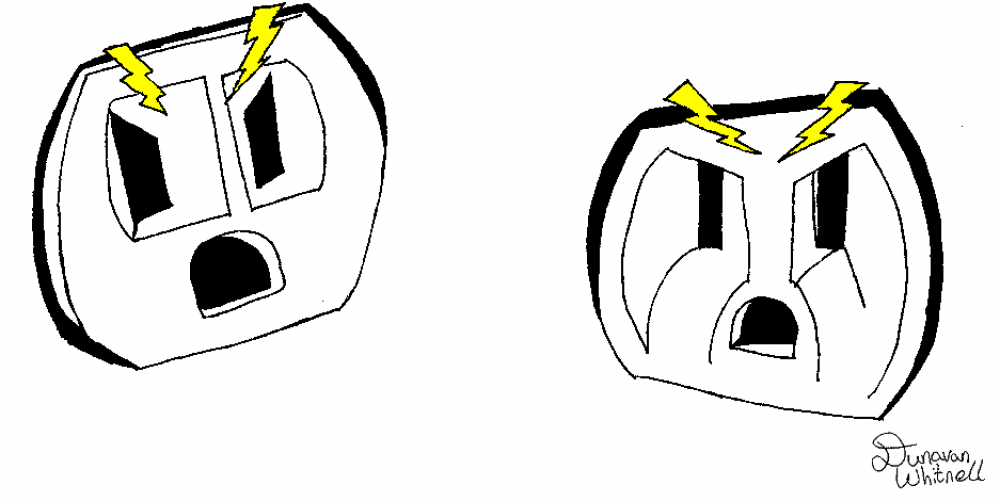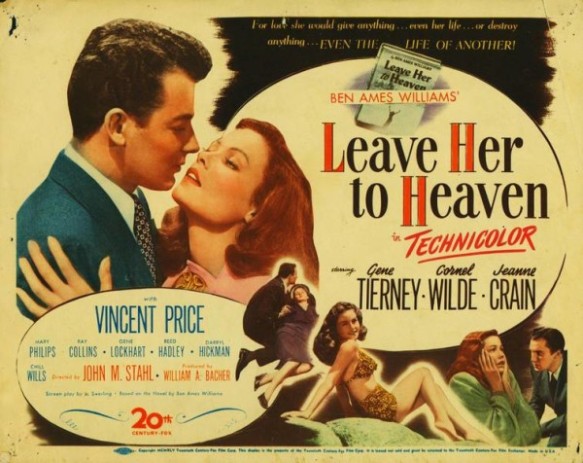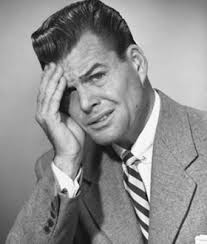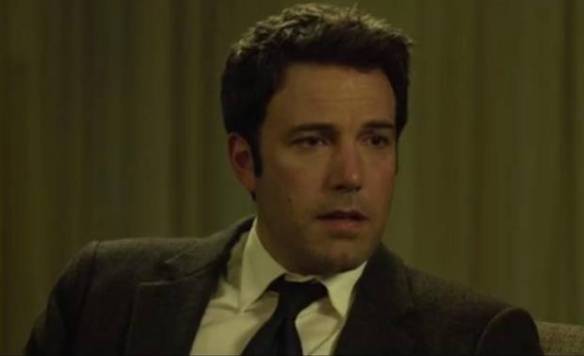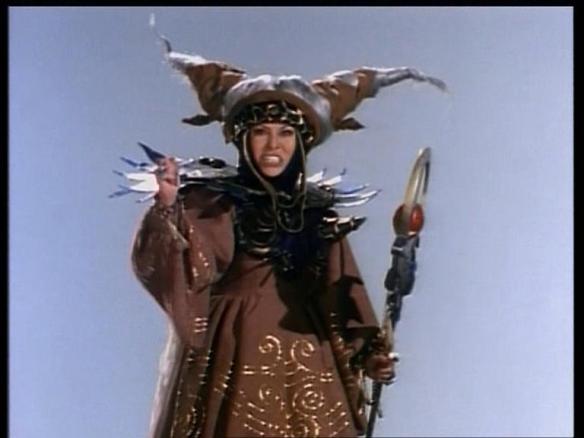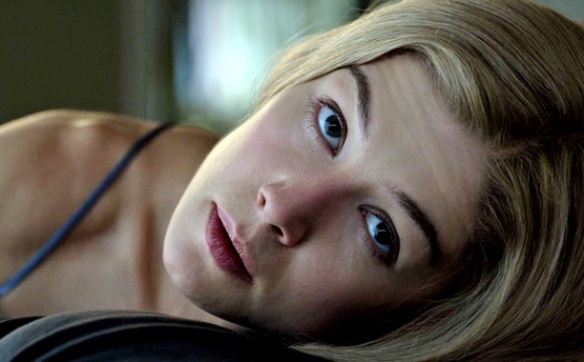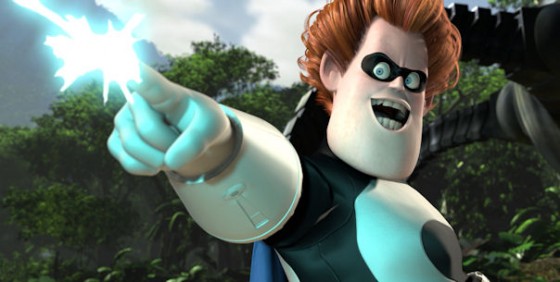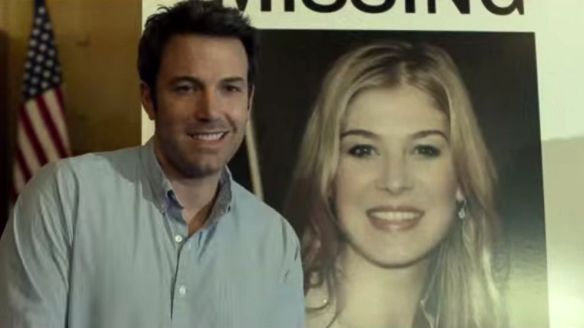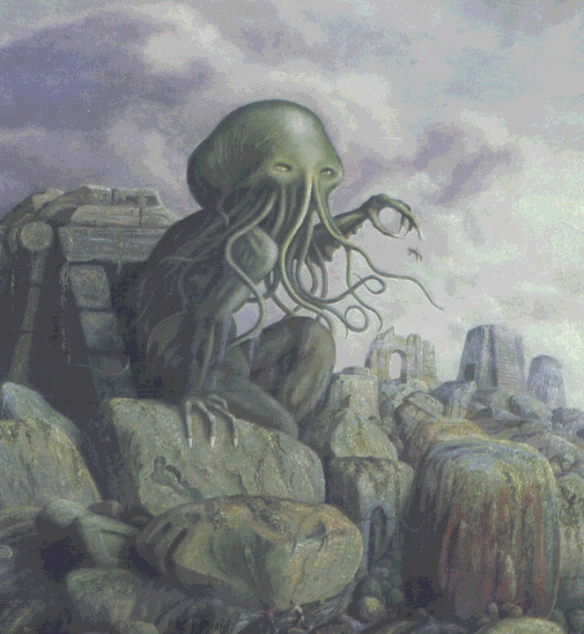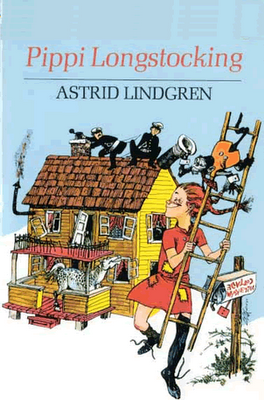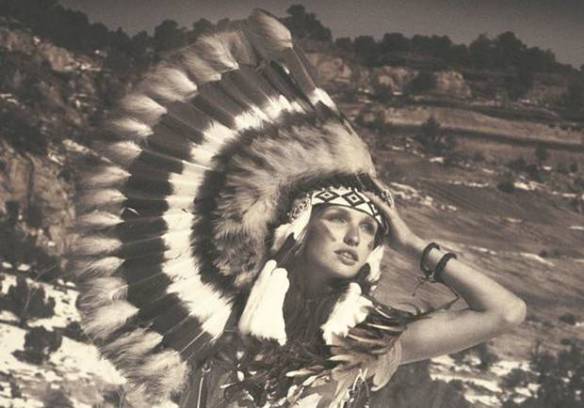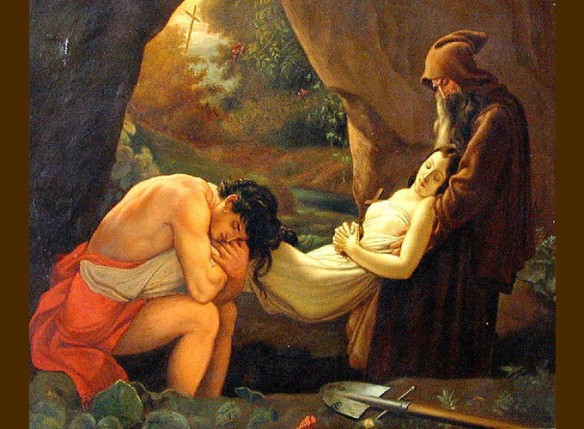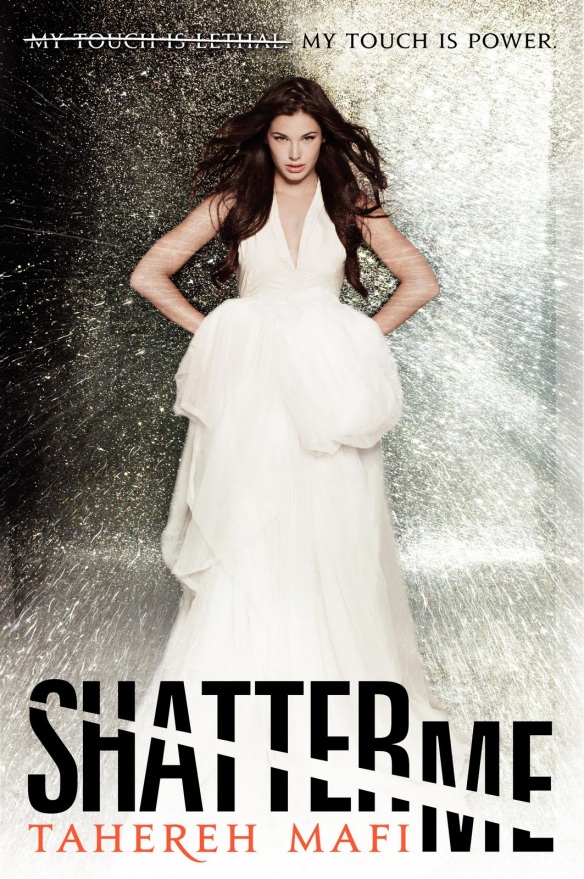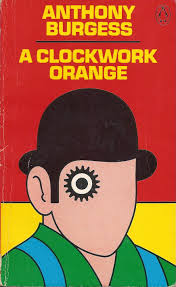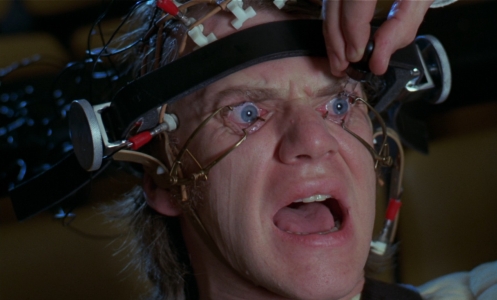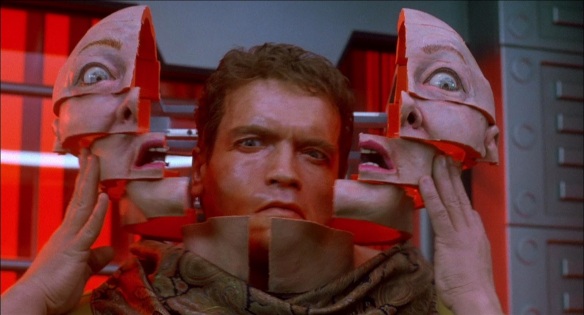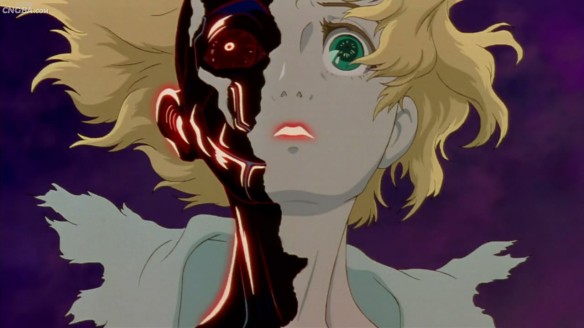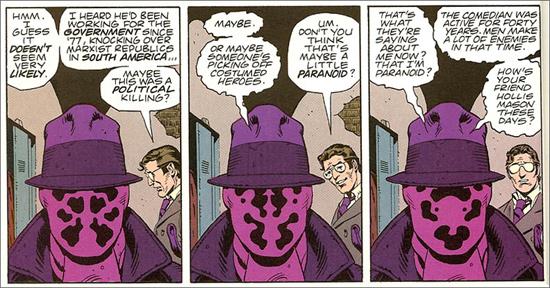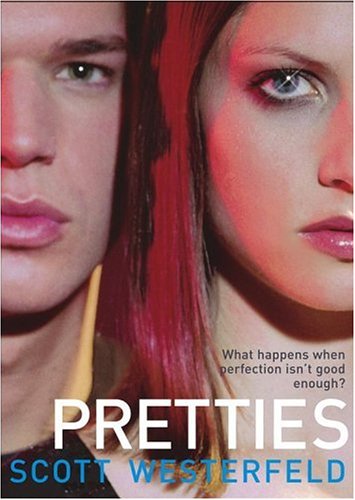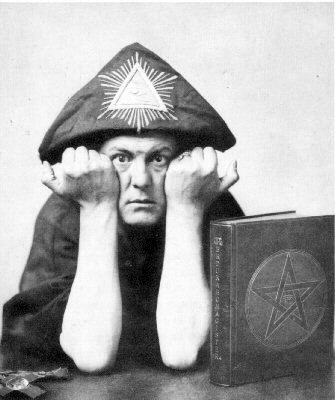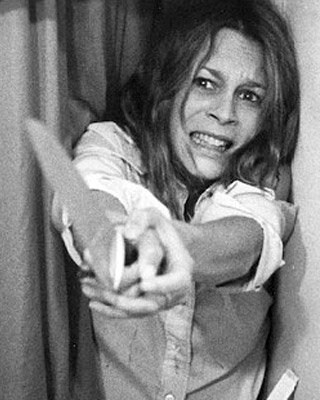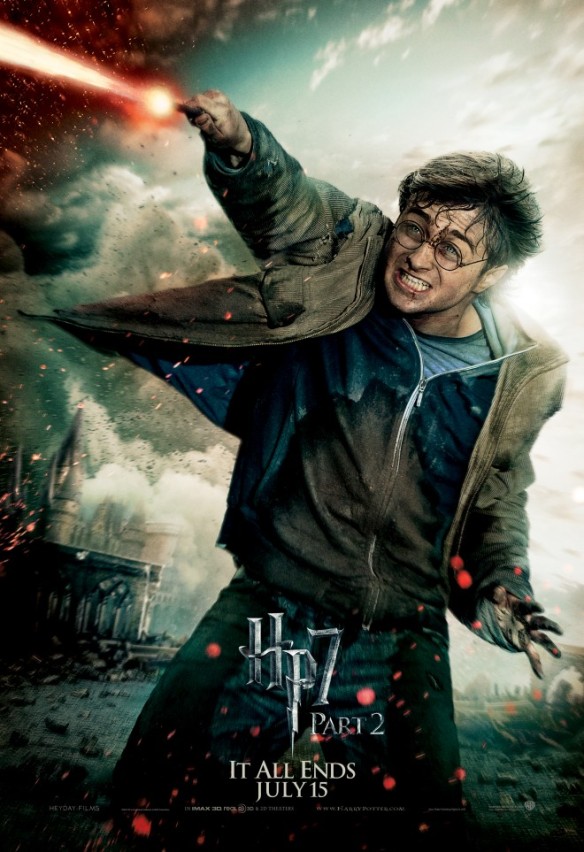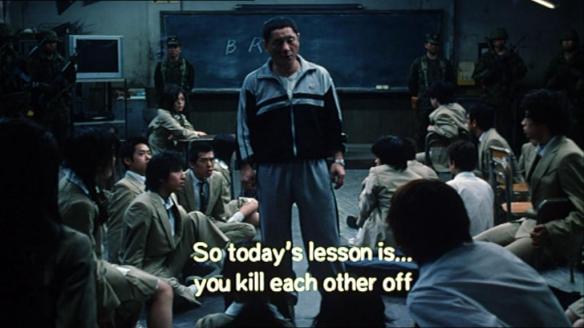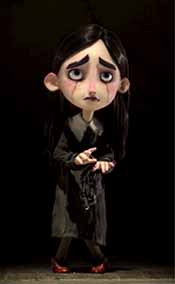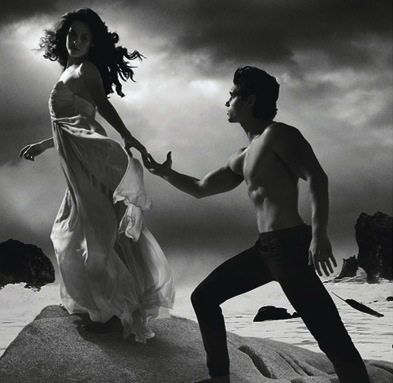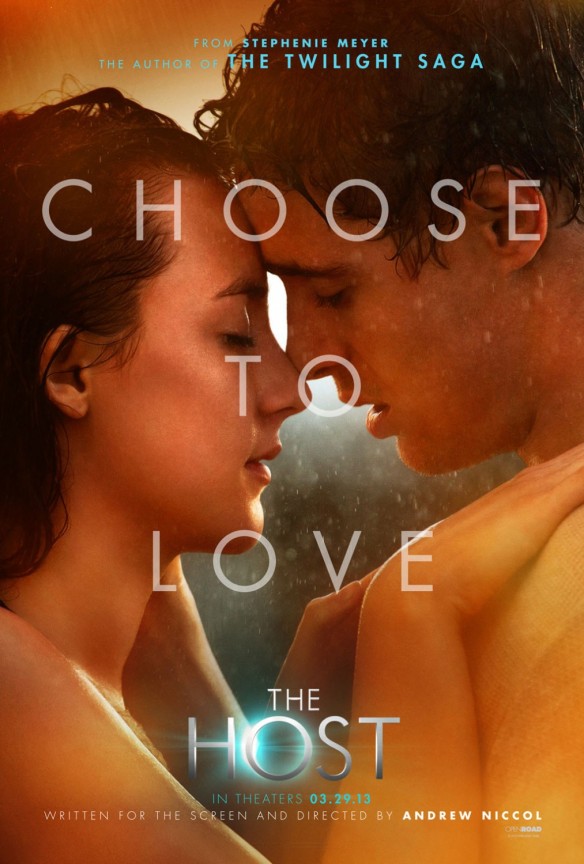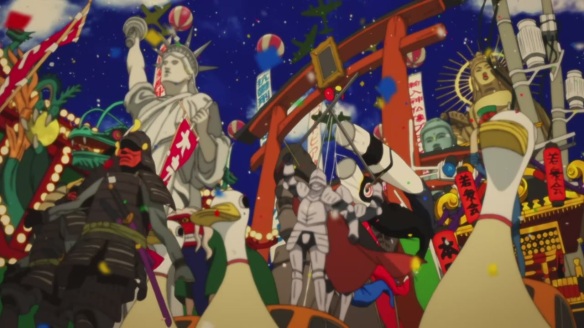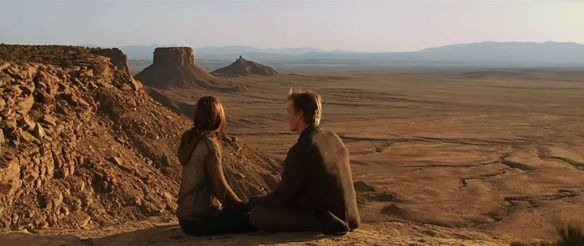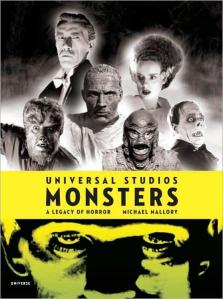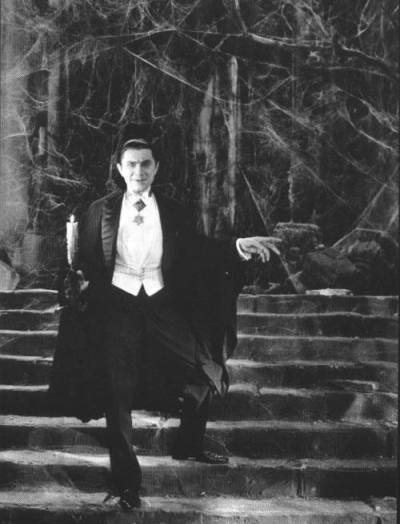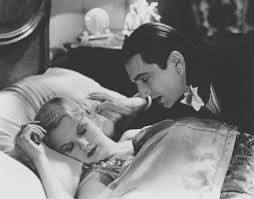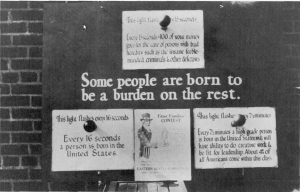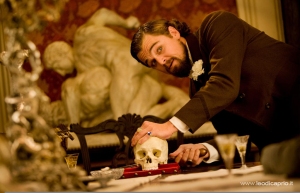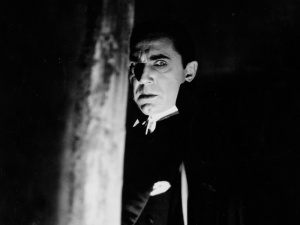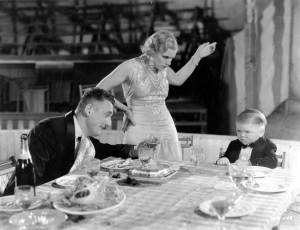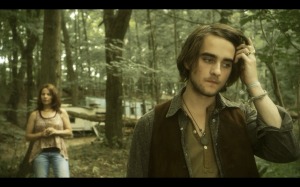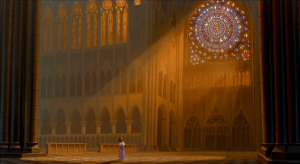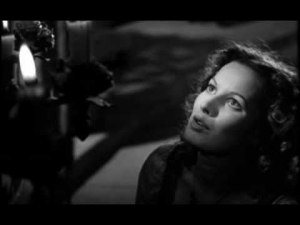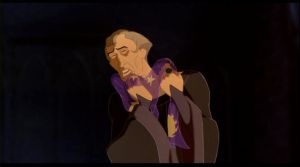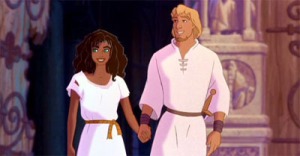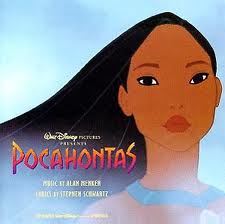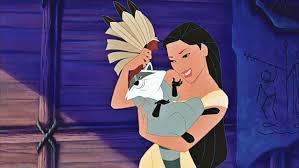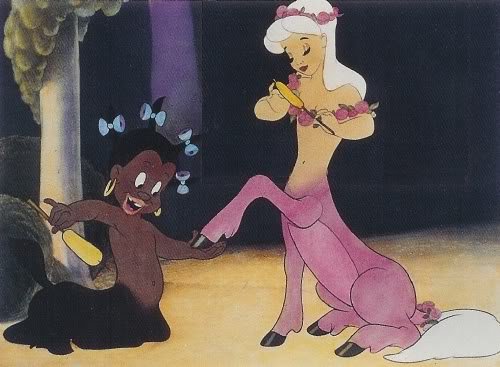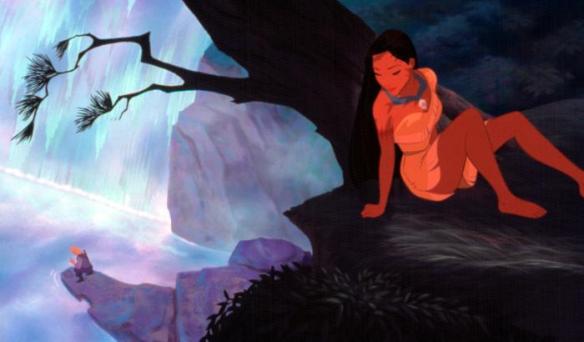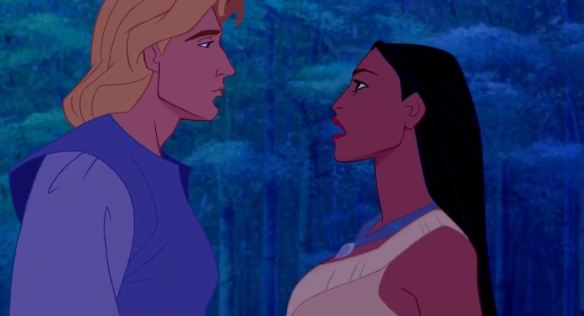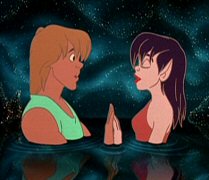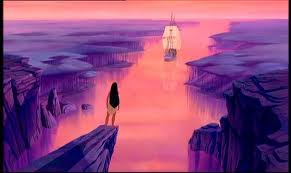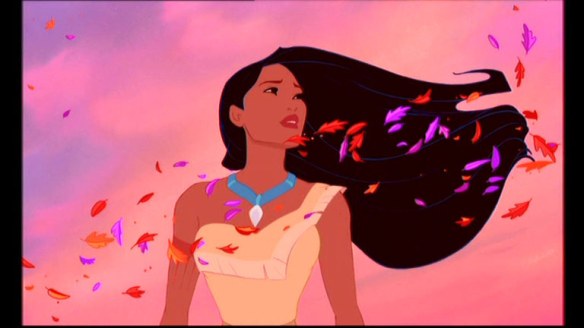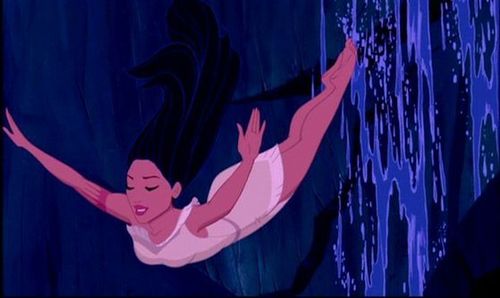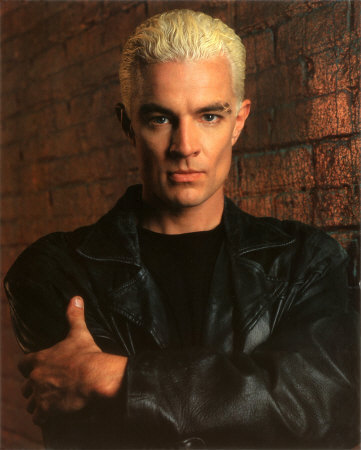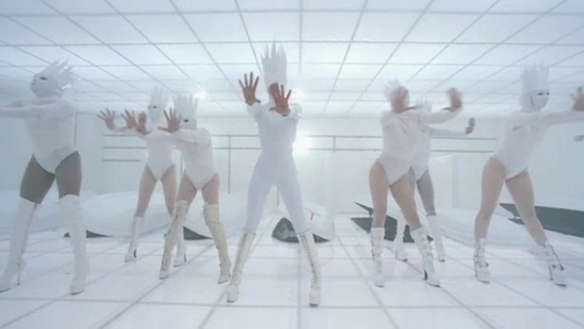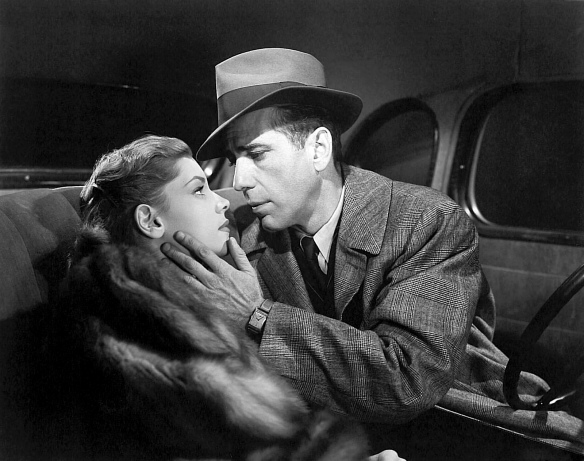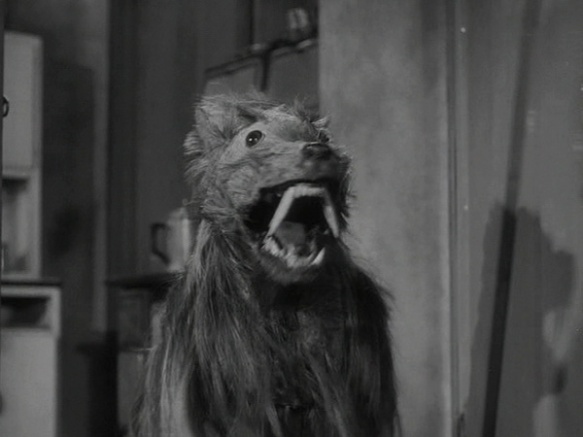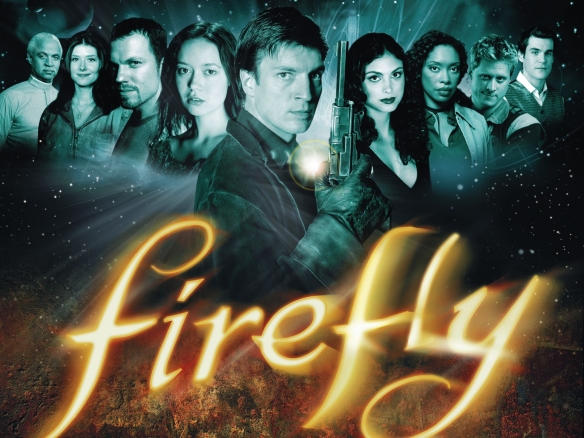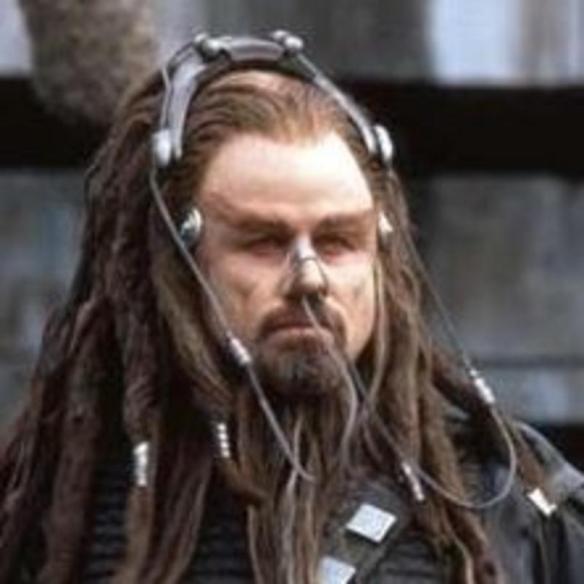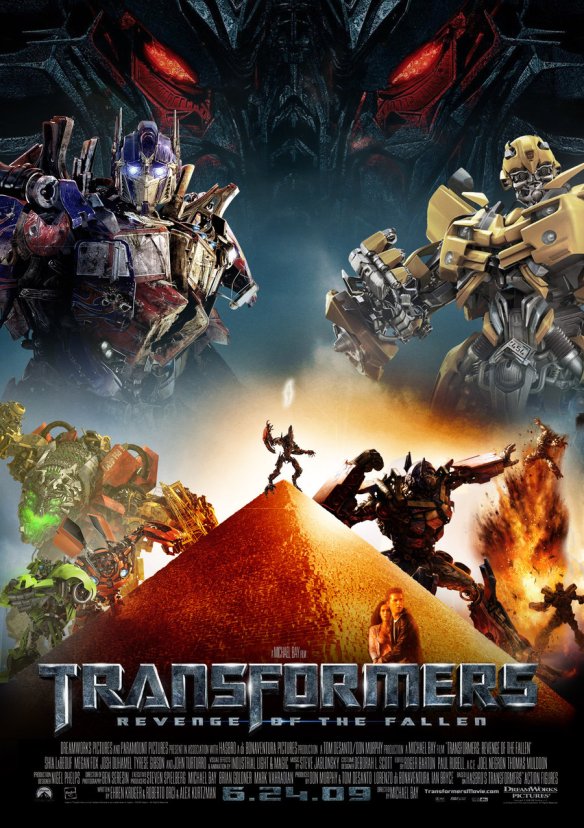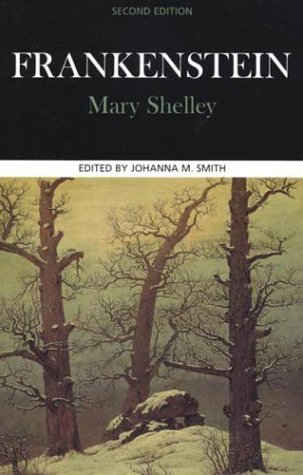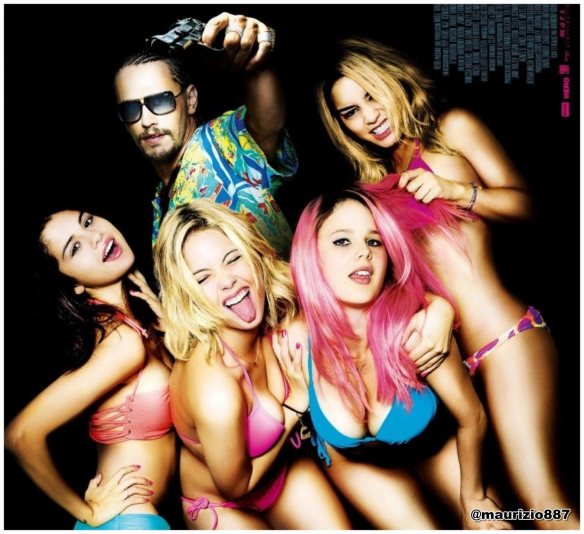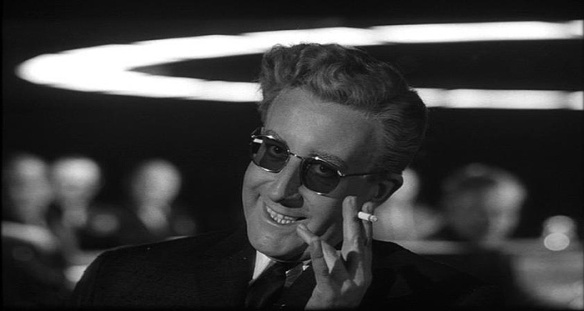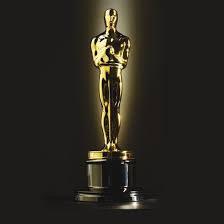I wanted to get a couple easy, fun airplane reads. I also love David Fincher movies and Japanese horror, so I decided it would be surefire to pick Gillian Flynn’s Gone Girl and Natsuo Kirino’s Out (which turned out to be bonkers). To be clear, I don’t really ever read thriller novels, at least for many years. This isn’t my usual go-to genre. I had no idea what either book was about. I did not know, for instance, that I would be picking up two very different discussions on gender: an often-called misogynist book by a self-proclaimed feminist, and a proclaimed feminist book that is full of pure crazy.
I also want to begin by saying that Gone Girl is one of my least favorite reading experiences.
Gone Girl is a mystery thriller that is becoming a movie (from the director of Fight Club and Se7en, so we can definitely expect cheerfulness and joy from the screen). It is also a “meditation” on marriage… or something. Basically, half the book is devoted to Amy and Nick, two preternaturally attractive, rich, New Yorker writers who New York a lot about New Yorking New York and how New York New York New York is.
Then they lose their jobs and move to Missouri. Karma.
I cannot express how much I despise the New York writer obsession. If the Nobel Prize for literature is hopelessly biased in many ways, I can’t say that it isn’t correct about how myopic the American literary scene is. Anyone reading literary fiction, and most especially that literary fiction that is really just middle-brow book club fiction, knows that New York is ubiquitous. It is so inescapable that even light satirizing of this New York obsession –which I think is at least a part of the novel– is still too New York. While the book does address the very real issue of artists and writers being priced out of New York’s ever inflating cost of living, it still does so with such an insular adulation for the culture and beauty of NYC that the message is lost amidst a lot of pandering nonsense. And, before anyone says, “Oh, but this book shows that New York isn’t all it’s cracked up to be! It’s a satire! It shows the dark underbelly of rich, arty New York types! The author just adores Missouri!” then I have one thing to say to you:
Yes. In the Jazz Era, Fitzgerald did it first and did it better.
And this book does bear more than a passing resemblance to Gatsby. It has the supposed “normal guy” from the Midwest, getting involved with a rich, beautiful New York person who may have a secret, and revealing corruption and ruined marriages. Also, someone unlikable dies.
I think that it’s not just the Gatsby-isms or the New York obsession that has this problem. The entire book feels tired, like it’s a cobbler of various other, better novels, ones which already addressed Flynn’s issues and did so better.
When I say that Gone Girl is a cobbler of other people’s better work, I am not kidding. One of the most frustrating things about this novel is how it thinks it is so very original, saying something so daring about marriage and crime and the media. And, yet, it is literally a remake. Yes. This book has already been written. And made into a film. This is the Hunger Games vs. Battle Royale scenario all over again. Sure, Hunger Games did some things that Battle Royale did not do, but it’s still basically the American, YA, Hollywood take on the original Japanese concept. In this case, Gone Girl is just a modernized, sexed-up, ultra-violent, hammy version of Leave Her to Heaven. The difference is, while The Hunger Games homages and steals from a relatively good book, Leave Her to Heaven was bland and forgettable. It’s a Noir-lite, with not enough Vincent Price.
Now, you may say that Flynn didn’t mean to steal the exact same plot from this not-exactly-obscure old movie. I would believe that, because Leave Her to Heaven, unlike The Big Sleep or The Third Man, is boring as hell. I would believe that, except that Flynn highlights her influences. She literally has characters discussing Noir. In one awkward bit, a character says that the story is like a Noir.
I find this grating and condescending. I don’t even like when better authors, like Donna Tartt, reference the books that inspired their work while in universe. It’s one thing to be meta, but it’s another to just awkwardly break the fourth wall for no reason whatsoever. I didn’t like, for example, when the characters in Secret History reference Dostoyevsky and The Great Gatsby, when the book already is very obviously inspired by Crime and Punishment and, again, Gatsby. We get it. We don’t need this spelled out for us. We’re not stupid. And, I really like Secret History! You should put down Gone Girl and read that instead. David Fincher should make that into a movie!
However, when Flynn references her inspirations, she does so in an annoyingly cutesy manner. For example, her supposedly literati, sophisticated main characters are just now, for the first time reading The Wind-Up Bird Chronicle. That book, like Gone Girl, is about a missing spouse and deals with marriage, pop-culture, relationships (and also the affect of World War II on the psyche, magic, and Japanese culture, and a lot of other cool things that make it more interesting than Gone Girl). It’s a much better book. It’s also literally the most obvious Murakami book anyone could be reading. To highlight how dumb this is, that book came out in 1994. Gone Girl takes place in 2011 or ’12. And yet, these supposedly brilliant, literary, New York types have only just NOW discovered Murakami’s most famous work.
And it’s not like Murakami is an unpopular writer. He’s famous world-wide and is always mentioned as a possible Nobel Prize winner. He’s a bestseller in his home country, and around the world, and has written many, many books. I’d get if the characters were only just now reading 1Q84, which is newer, or even Hard Boiled Wonderland and the End of the World, which is less popular. But, Wind-Up Bird Chronicle? Really? Your intellectual, “brilliant” (her words, not mine) writer characters have only just now discovered this super-popular book from the mid ‘90s? Really? Oh, well, what other “new” discoveries from the troves of celebrated, popular ’90s media will they pull out? I half expect the characters to talk about that “new and edgy” Fight Club book, or that brand new Geek Love, or the just-out-now American Psycho. Then they can tell us all about this new band called The Shins and how they just discovered Wes Anderson movies.
This is worse than being a hipster. This is thinking you are a hipster while showing off the media that literally everyone is already into.
When Flynn writes about intellectuals, she sounds like she’s saying what she thinks bookish people should say (which is weird, because Flynn is a successful writer, so you’d think she’d be writing what she herself knows…). Time and time again she reminds us that Nick is literary and Amy is a genius. I lost track of how many times characters call Amy “brilliant”. Yet, these supposedly literary people are really not that impressive. Amy, for all her supposed “genius” can’t write anything better than women’s journal personality quizzes, for instance. Annoyingly, she incorporates these quizzes into her POV sections of the novel, to the point where I wanted to claw my own eyes out. And both Amy and Nick have only the most basic interest in literature, despite the fact that they are supposedly lost without their identities as writers and literary types, and this is a huge deal for half the book.
This is more than just a problem with realistic characters. This is also a plot issue. If I am to believe that these characters are so torn-up about leaving their New York scene, then I better feel like they actually care about something other than “just being in New York”. Supposedly this story is also about job loss and identity, and their jobs and identities were tied into their writer scene. Now, you may say that this is the point (which still begs the question about all the parts concerning how literary and smart the characters are), but that’s kind of not the point. The fact is, even if you have unlikable characters, you still need engaging characters. Your characters have to have some drive or impetus. We are never asked, as readers, to stand back and laugh at their behavior, as you would in a satire like Confederacy of Dunces, and neither do we get drawn into madness by understanding, but disliking, characters, like Therese Raquin. It’s too confessional and immediate, and the thriller tropes keep the reader from stepping back and contemplating the disaster.
The fact is, Flynn’s prose demands very little from readers. We get simple, YA-style first-person narratives, switching between Nick’s ongoing situation with Amy’s disappearance, and Amy’s diary. At least, for the first half. And these characters are just not compelling. To be fair, Nick’s initial confusion and ambiguity does create some suspense here, because there is some mystery. What happened to Amy? Is Nick innocent or guilty? But, Amy’s diary is unbearable, a series of reactions and audience pleading about how bad she has it and how nice she’s trying to be. It isn’t a character. It’s a series of events to be reacted to. Literally not one entry has anything to do with anything but Nick. We only get a vague definition of who Amy is based on who others are and how she reacts to them. But, we do get dozens of fake personality quizzes, so at least the prose is aggravating, childish, and clunky.
Nick’s first half is better, and certainly his best part. He is by far most interesting when you don’t know if he killed Amy. He’s active here. He seems creepy. He has weird reactions to the police. He seems like he could be complicated and, dare I say it, compelling. Sure, his prose style is also pretty weak, with lots of ambling and whining and talking about his cleft chin (seriously), but things are happening.
And then we get to the second half, a twist, and everything goes to shit.
Spoilers:
I’m serious, spoilers.
Amy isn’t dead.
Of course, if you have seen or read Leave Her to Heaven, you already know the plot twist. Even if you haven’t, current storytelling convention dictates that the obviously guilty guy in any mystery is obviously not guilty, so the twist is pretty easy to spot. Amy is settling Nick up for murder because he cheated. In Leave Her to Heaven, she actually kills herself, because that is a much braver story. But in this one she just has this complicated master-plan of evil.
This causes so many problems. I don’t mean for the characters. I mean for the book. First of all, our only access to Amy’s mind has been through her annoying diary. However, halfway through the novel, Amy says that she made it all up, the diary was a fake, and she invented that Amy. This is a problem, because so far our only character development has been that diary. Now, we are left with this conniving villain, who’s so over-the-top that she makes the character from Leave Her to Heaven look subtle, and we have no real motivation. Instead, all we get is this tirade about how tired she is of being the “cool girl”. If that sounds like something from the internet, it’s because this monologue has been shared around as a meme, which is basically all it is.
But, an abstract, intellectual idea of the problems with certain forms of gender conformity is not character development. Characters are not tropes, ideas, quirks, or morals. They are people, and Amy really isn’t a person anymore. She’s just a villain.
The only vaguely interesting part of Leave Her to Heaven is that we know from the start that the main character is marrying a psycho. Granted, we know this from some pretty dated sexism about ambitious women, but we do know that she is jealous, obsessive, competitive, and will never lose. Her family knows it, and we as the audience know it. We also see her commit her crimes, and we see her humanity. We see that she is frustrated, lonely, and sad, and that actually makes her a lot scarier when you remember that she is so extremely competitive and obsessive. She’s complex (ish… it’s still a pretty lame Noir). Amy… oh where to begin? I have no idea what Amy is supposed to be. We have no development with her, no humanity, and therefore no real scariness. She just is kinda evil, and not in a No Country for Old Men way, where we have a meditation on the problem of evil from an unstoppable force. No, she’s just bad. Kinda always was bad. Just a bad seed, I guess. Like having blond hair. It just happens.
Another issue with this is that the author has also kind of ruined Nick. From this point onward, he’s the one only thinking about other people, being defined by other people, and reacting to them. He’s no longer dynamic, no longer interesting. Nick would literally have been more sympathetic if he had killed Amy, because he would be an active character. We can sympathize with and engage with unlikable, bad characters, from Patrick Bateman to Raskolnikov, but Nick is now just man-victim to Amy’s harpy. These aren’t characters. These are figures in a bad joke.
Furthermore, from a construction standpoint, this novel doesn’t work once the twist is revealed. And I don’t just mean this because anyone who has seen Leave Her to Heaven could predict the twist a mile away. I mean that, from a writing standpoint, the story grinds to a halt. You see, with Nick now just being a passive victim and Amy having no character development, Flynn had to find some way to cram in details about Amy in order to reveal to Nick that he is married to a sociopath. She does this by just having people tell Nick stuff. That’s it. The thrilling novel of the year! People Talking About Stuff: The Book! Get ready for the thrilling mystery of the century, as characters you never met before tell your passive protagonist stuff that he should probably figure out himself. Sit on the edge of your seat as characters talk to you about scenes you’ll never get to read about.
Show? What’s that? Characters just come along and tell Nick things like, “Oh, yeah, Amy totes cray. She tried to frame me too.” Apparently framing is her MO, because she has done this to about four people. That’s just comical. In the end, Flynn just decides to let Amy tell the readers her evil plan, like a cartoon villain. “Oh, I used puppets to scare Nick because he’s afraid of puppets! We never saw this before, but I’m telling you now! Mwahahaa!” Really? Couldn’t have any scene showing this puppet fear, ever? Even in the end, Amy just tells Nick everything that happened, even things that the readers already read about, because fuck redundancy. She even just tells Nick about the murder she commits, because God knows we can’t have any action in the entire book. That would get in the way of all the scenes of characters talking about how bad it is to not be in New York. You know, the exciting stuff.
Now, I am not an action-y type person, so the fact that I am complaining about too much introspection just speaks volumes about the quality of these characters. I don’t want to be in their heads. They don’t have anything compelling to say. And yet, Flynn lets them go on and on about marriage and gender and family life and art as if every word were profound insight into the postmodern condition. Because God knows I care so much about hearing middle class, privileged people whine about their love lives.
It doesn’t help that every character sounds like a teenage girl. Every character. Nick, Amy, the annoyingly nicknamed sister “Go” (Margaret), the supporting cast. Everyone. Characters talk like they are in a highschool romance, squeeing over their love lives, talking about how hot people are, or how hot they are. You know, like real life.
For instance, one of Nick’s big “flaws” is that he’s just too sexy. That’s a real character flaw, right? It’s like Marilyn Monroe’s glasses in How to Marry a Millionaire.
Nick and other characters, however, reference his tragic handsomeness all the time. It’s like the author thinks it’s a disability. Let’s start an anti-defamation league for hot people. Obviously sexpots have just had it too hard for too long in this country! Clearly our prisons are all filled with preternaturally gorgeous, middle class, educated, white guys who look like movie stars. We have sports teams named for derogatory terms for hot guys. Every time a hot person commits a crime, media commentators demand for hot people to speak out against hot person crime. We don’t read any novels written by attractive people. We segregate our schools against the sexiest and most popular. We have a long history of lynching the gorgeous, banning their marriages, and stealing their lands. It’s just a crisis.
This really ties into some of the troublesome aspects of the story. Because before all of this, we just have a big, dumb, overblown bit of nonsense from an author trying way too hard to be smart and way too hard to be creepy, and getting way too into her chin fetish. (Note to Flynn, as much as you might find the scene about snapping sardine bones to be “chilling”, the cold reality is that sardine bones are soft. You won’t notice them. They’re delicious, not scary!) However, there is actually a controversy around this book, for some reason.
I wish I was kidding, because this book is way too silly to have a controversy. I mean, Amy literally tricks a high school classmate into pretending to be her to trick her parents into thinking she has a stalker, because Amy is famous, because her parents wrote children’s books about her which, of course, made them super wealthy and… Is this even a real book? I feel like I’m making this up from some really awkward dream.
But, because the world is cruel and illogical, this became a bfd and we have a controversy, and with it all kinds of think pieces.
Probably the most obvious is that Flynn wanted to write a book about how the husband is demonized by the media when the wife disappears. This does happen, because most crimes are committed by people close to the victim, so it’s not really surprising. But, sure, Flynn. I’m game. Media is salacious and vicious, and innocent people get dragged out for the vultures every time a crime happens. (Dingo baby, anyone?) The trouble is, Gillian Flynn has been accused of misogyny. And… that’s not a hard accusation to make. After all, this book has not one, but four false rape cases. It’s a story in which a character fakes her own abuse at the hands of various men, who are all super passive and just remain her victims because women be evil.
And it isn’t just that Amy is evil. Amy is evil in the most stereotypical ways possible: she manipulates her husband’s emotions, steals from him, fakes rape, pits men against each other, refuses to have a baby, literally steals Nick’s sperm from a fertility clinic to blackmail him with a baby, basically sexually assaults Nick, uses her beauty to fool others, plants porn in Nick’s house, uses Nick’s daddy issues against him… Even in petty, unrelated ways, she’s a stereotype. She’s judgemental about weight, calls other women ugly, is obsessed with how pretty and blond she is. It’s not breaking any new ground in terms of character development. She’s like if Princess Peach became a super villain. Miss Julie is more well-rounded and less stereotypical.
And women, in general, do not come out on top, from the anti-man news broadcaster, who you know is crazy because she’s anti-porn!!!, to the domestic abuse runaway who steals Amy’s money and has no character whatsoever (in comparison, see the hard-working, homeless-with-a-heart-of-gold squatters in the old mall, who have been falsely accused of, you guessed it, rape). Women are flirts who turn on Nick when he doesn’t respond to their offers of frito pie, and force him to TAKE SELFIES!!!
Women are mistresses who turn on Nick because women be jealous and can’t see how bad it looks to be a cheater when one’s spouse is missing.
Literally the only decent women in the story are the elegant, old-school newscaster, Nick’s mom, and his nurturing, motherly, laid-back, too cool, “unconventionally beautiful” sister, Go, who just understands Nick so well, and even makes him a sandwich and a beer when he’s blue…
What’s weird, though, is that Flynn says she’s a feminist, and that she wanted to create Amy because she was tired of women always being the victims and wanted women to be the villains once in a while.
Now, for one thing, yeah, I don’t doubt that is true. But, if you’re tired of not having good female villains (you know, aside from all the real Noirs, that did it first and better, Narnia, Harry Potter, and shitload of other popular stories), you might want to, you know, do that. Amy is such a poorly written character that rather than being shocking and scary, she was just funny. Oh, there goes Amy again! Golly, gee, who’s she gonna unrealistically frame by causing herself harm today? And that’s pretty much her entire character. She hurts herself and says someone else did it. It’s predictable. Furthermore, it’s kinda unbelievable. The character is supposed to be this evil genius, but, because this book is allergic to showing, we just hear that she’s brilliant. Hell, the smartest thing she does his write clues, read a book, and act bitchy. Her brilliant plan would actually never work, due to forensics (she drugs her murder victim first), she carries money out in the open in cash, she doesn’t know how to budget, she talks in personality quizzes, and she sounds like a teenager. She literally only gets away with her crimes because the plot says so.
And there’s a lot of that. By the time Nick and Go decide Amy is alive and framing Nick, the story still could go either way. Nick still looks guilty as hell and kind of has to jump through some creative hoops to arrive at his conclusion. Sure, he’s right, but he only is because Flynn says so. In real life, no one would come to that conclusion. It’s too far-fetched and crazy, which is also how it feels as a reader. The scarier it’s supposed to be, the funnier it is. It’s like a cheesy horror movie.
But, in terms of controversy, if you want to deconstruct gender tropes and create a female villain, fine. Go for it. But, don’t expect people to think you’re a feminist when she’s literally just a collection of stereotypes attacking poor, passive Nick. In fact, every man in the story is a victim to women and society, except for Nick’s abusive father, who only exists to make Nick look good by comparison and to give him a wooby back story.
The trouble is, Nick is also a horrible victim. He’s so passive and uninteresting that he would be far more compelling and sympathetic as a murderer. It is beyond the pale of reason to believe that he is victimized because he is too handsome, as well. Because everyone knows the biggest victims in society are sexy, intellectual, young, white men, with big houses. God knows that the media just loves to hate those guys, except that isn’t the world we live in. In fact, we’re so prejudiced in favor of good-looking people that people actually had a hard time convicting Ted Bundy, and he was a serial killer! And look at what they did to the Boston bomber. People actually irrationally love attractive people, even if it’s beyond all reason and they are clearly monsters.
Nick would have been so much more believable if Flynn wasn’t so fangirly about her own characters and managed to write a plain or awkward man whose chin wasn’t to die for. If he was a little overweight, people would have discriminated against him, and we all know it. That’s a real thing, and it’s shitty and cruel, and we know it happens. Fat guys are constantly being portrayed as sexist losers and manchildren. But, sexy guys? Really?
But, honestly, I think Flynn believes she is a feminist. Feminism, despite being so present, isn’t very defined anymore, if it ever was at all. Anything vaguely relating to women is feminist. And, for some reason, it’s okay to use supposed feminism to attack other women who threaten your own insecurities.

Don’t worry about your size, beautiful! Unless you’re one of those stupid skinny bitches… I hate them. #Feminism!!!!
In reality, guys, feminism really has nothing to do with memes and Dove ads and feeling pretty. It’s more of a loosely connected conglomerate philosophy-sociology movement about the nature of being as women (woman qua woman, if you will) as opposed to Othering definitions. From this, one derives social justice actions, like fighting child brides or winning the vote. But one does not have to be feminist to fight any of these issues at all. Logically, if feminism were just a protest, as soon as these issues are abolished, feminism would be no more. This would mean it has no ontology or epistemology, and the question of “what is woman” or “how is woman to be” would not important to answer. Unfortunately, under the guise of feminism, we get a subset that just sort of use it as an outlet for their insecurities. And, sadly, the target for these insecurities are often other women.
In reality, Flynn doesn’t hate women. But, I think she possibly hates a certain kind of woman. Rather than address social beauty standards, she makes her size-two blond villain a total bitch. Meanwhile, the brunette, unconventionally attractive, old-school, supportive, nurturing Go is awesome.
 And, my problem here is that for the whole anti-cool girl rant, Go is a cool girl. She’s just a different one. She’s Taylor Swift on the bleachers. She’s the one who’s relatable. She’s not blond and twiggy. She’s stately and old-school, but not above drinking beer and sharing crass jokes with her bro and watching the sports game and being totally happy to be so supportive. Flynn isn’t attacking any gendered social structures. She’s just replaced them with one that makes her more comfortable.
And, my problem here is that for the whole anti-cool girl rant, Go is a cool girl. She’s just a different one. She’s Taylor Swift on the bleachers. She’s the one who’s relatable. She’s not blond and twiggy. She’s stately and old-school, but not above drinking beer and sharing crass jokes with her bro and watching the sports game and being totally happy to be so supportive. Flynn isn’t attacking any gendered social structures. She’s just replaced them with one that makes her more comfortable.
The thing is, though, I can’t care that much about this book, and that’s a problem. I can’t care about the loss of their jobs, for instance.The market crash affected a whole hell of a lot more than ritzy, New York hipsters, and I just cannot be compelled to read about them in such a straight, serious manner. There is no real commentary. It’s just played too straight. I don’t care about these people, and I also do not believe they could exist. I don’t believe in Amy, because I don’t know why she does anything that she does. I don’t believe in Nick, because he’s too passive to be fully realized as a character. He’s just a victim stereotype, which is not more interesting because Flynn thinks she’s subverting gender norms (except for the fact that this is a Noir, and femme fatales are literally in all of them). I don’t believe that Amy’s parents made a fortune writing children’s books about their daughter. I don’t believe that Amy pulled off any of her crimes. I don’t believe that the answer to deconstructing rape stereotypes is to use “the girl who cried rape” stereotype four times in one novel. I don’t believe that sardine bones pop when you eat them. I don’t believe our characters are smart. I don’t believe that this case would be popular in the media, at least for very long, and I don’t believe that Nick’s taped interview would go viral online. He isn’t a cat or a naked chick or someone talking about the illuminati, so… no. Also, those youtube comments in the book should mostly be swearing, hate, and people calling each other Hitler or spamming the hell out of everything. Flynn’s world is too simple, and things work too conveniently for the plot, and so nothing is interesting or believable. The details are off, and the characters are too broad.
The book doesn’t work as a thriller, because it’s plodding, predictable, and telly. It doesn’t work as a satire because it’s played too straight and nothing is sent up. It doesn’t work as a portrait of marriage, because no one really acts like this and the characters have too little development. It doesn’t work. I don’t even like addressing its controversies because it’s too silly to be controversial. Amy frames her husband with a set of Punch and Judy puppets and a cache of bdsm pornos, for pity’s sake. That’s hilarious!
And, for those who say that Flynn WANTS us to dislike the characters, and I don’t get it… Oh, I get it. I mean, I absolutely love Zola’s books, and he’s being intentionally unlikable. I understand unlikable characters. What I don’t understand are flat, passive, uninteresting ones who never change. The characters are basically the same at the end of the novel, only Nick just knows that Amy is crazy. The situation changes, but the people don’t. We don’t see them grow or learn or change. Furthermore, I think it’s pretty obvious from Flynn’s commentary about how much of herself she put into Nick’s character (being a writer, the New York thing, the job loss, and how much she freaking adores Missouri), that we can assume Nick is the good guy. He ends the book as the passive, wooby, ridiculously attractive victim to the psychotic, domineering Amy, who probably went on to wreck his car, not understand how to use a remote, and refuse to let him watch the ball game when she wants to watch a costume drama musical.
The funny part is, David Fincher isn’t really so fond of Nick. Fincher, who adapted the novel for the screen, roots for Amy. He thinks Nick is pathetic. And, frankly, that’s not hard to understand. I mean, Nick, in a Fincher movie, is the kind of character who would be mocked by his own invisible friend. Nick is the one who would get chewed out by Morgan Freeman. And, that makes sense. Fincher likes his anarchic, violent, weirdos. Hell, even in Se7en, the serial killer technically wins. If anyone could put some realism into these characters, it’s Fincher. And, maybe this totally different take, without all the stupid emphasis on Nick’s cleft chin, and with the audience actually getting to see the events, rather than hear about them, we could get a decent-ish story… that’s still Leave Her to Heaven.
Thank goodness I paired this with a batshit insane story about dismembering bodies. Oh, wait…
